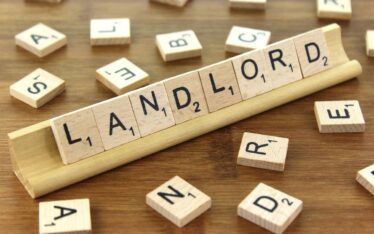There are numerous terms that are used when applying for a mortgage so we’ve put together this useful list for you to refer to. If any of them are unclear or need further explanation don’t forget – we’re always here to help you.
Arrangement Fee
This is the fee that is charged by a mortgage lender to organise a loan against your property. The fee varies depending on the type of mortgage you take out. You can usually add the arrangement fee to your loan or pay for it separately. It will cost more in the long run if you add this fee to your mortgage.
Arrears
This is whereby you have defaulted at least once on your mortgage and your account will effectively go into what is known as ‘arrears’. If you can, you should always contact your lender before this happens. If you continue not paying your mortgage your home may be repossessed in certain circumstances.
Bank of England (BOE) Base Rate
Often referred to as the ‘BOE’ base rate, it is the rate at which banks borrow money at. It can have an impact on interest rates and mortgage rates but doesn’t always.
Booking Fee
A fee charged by the lender when arranging a loan on certain products. Can be the same as an arrangement fee (see above).
Buildings and contents insurance
Buildings insurance covers you in the event of your house needing to be rebuilt in part or in full due to becoming damaged or unliveable (i.e. due to a major fire). It is often the case that your lender will ask for evidence of building contents insurance to protect them against the cost of your property needing to be rebuilt. Contents insurance covers the contents of your house against theft or accidental damage. It is important that people consider the value of their belongings as most people vastly under-estimate the value of their belongings, particularly where jewellery, clothing, accessories or electricals are being considered. Mortgagez can help you find the best deal for your buildings and contents insurance – please just ask.
Buy-to-Let (B-T-L) mortgage
Is a mortgage designed for landlords who are looking to purchase a property to rent out. Buy-to-let mortgages tend to be interest only type mortgages (see interest only). These types of mortgages are not a regulated product and do not therefore fall under the FCA regulatory regime. Mortgagez have a great deal of experience in this area and would be happy to assist with any of your buy-to-let mortgage requirements.
Capital
This term is often used to describe the loan amount i.e. the sum of money a lender is loaning you (or the capital) in order to complete your property purchase.
Capital repayment mortgage
This is where both the capital (loan amount) and interest on that loan are paid off with each monthly mortgage payment. At the end of the mortgage term, the loan should be fully repaid. This type of mortgage is also sometimes referred to as a ‘Capital and interest’ mortgage.
Credit rating (credit score)
Your credit rating allows lenders to see how much of a risk it would be to offer you a mortgage in the form of a loan. Your rating is determined by your credit score which is assessed by one of the credit ratings agencies. There are three main UK credit ratings agencies namely Equifax, Transunion and Experian. Lenders can use any one of these (or all of them) to assess you. A bad credit rating can make it more difficult to obtain a new mortgage but not impossible – although you may end up paying a higher interest rate if you are accepted by one of the lenders. For more information on credit scoring please see our other content. Mortgagez are happy to help if you have a lower than expected credit score – please just ask.
Completion
This is the day all the legal requirements as part of the conveyancing process are completed and the final sums of money are transferred to the various parties. Your solicitor will handle this process for you and if you are a home mover it’s also the day that you will receive the keys and can physically move into your new property.
Conveyancing
Conveyancing is the overall term used for ensuring that you are meeting all of the necessary legal obligations required as part of your property purchase. The conveyancing process also ensures that the transfer of the legal title of a property from one person to another is carried out correctly.
Defaults
This is when you miss a mortgage payment. Also see ‘arrears’ explained.
Deposit
This is the amount of money you are able to put down against a property in order to be able to obtain a mortgage (loan) for the remaining amount. A deposit often comes from the equity in your house if you are remortgaging. Your deposit (or equity) also forms the basis of a Loan-to-Value calculation – see LTV explained. It is important to remember that in addition to your deposit when buying a property you may also need to allow for other fees such as lenders fees, solicitors fees, moving costs and survey/valuation fees.
Down-sizing
Where a property has become too large after perhaps all the children have left home, people often ‘down-size’ to a smaller property. Depending on the value of the new property, this can release equity.
Early repayment (redemption) charge
These are charges that you are required to pay if you pay off or settle your mortgage early. If you have a fixed rate mortgage it is usually a charge imposed if you pay off your mortgage before that fixed period has ended.
Equity
This is the amount of money in your property that you own. For example your property may be valued at £500,000 but your mortgage is only for £100,000. You therefore have £400,000 equity in your property and if you were to sell it you would receive £400,000 less any costs. If you are remortgaging or moving to another property it would provide you with a deposit for your next purchase.
Exchange
The point at which in England, Northern Ireland and Wales you sign a binding agreement committing you to buying a property. At the same time, the vendor is committing to selling the property to you, for the agreed price, subject to all legal requirements being satisfied. Once you and the vendor have agreed on a completion date (which will also be the day you receive the keys and can physically move in), contracts can be exchanged. At this point you are usually required to pay a deposit of 10% of the property value with the balance of any deposit and your legal fees to then be paid upon completion.
First Time Buyer
Somebody who is buying a property for the first time. Sometimes first time buyers are eligible for assistance with their property purchase in the form of special mortgage arrangements/deals to enable them to get a foot on the property ladder.
Fixed rate mortgage
This is where the mortgage rate is fixed for a period of time (usually 2, 3, 5, 7 or 10 years). It gives peace of mind and is helpful for budgeting. It protects you from any interest rate rises but equally if they fall you could be fixed in at a higher rate.
Freehold
This is where you own the property (either solely or in joint names) and the land that it sits on.
Further advance
Is an additional loan from your lender on top of your original mortgage. It is often applied for and used to fund home improvements. An alternative to this is a second mortgage with another lender.
Gazumping
Is where someone else puts in a higher offer on the property you have offered on and your offer is then subsequently rejected. This can legally happen at any point up until you have exchanged contracts (i.e. made a legal commitment to purchase). Certain market conditions can make this more likely to happen i.e. particularly in a rapidly rising market where prices can increase during a relatively short period of time causing the vendor to seek a higher price.
Gazundering
The opposite of Gazumping (above), gazundering is where someone who has already agreed a price with the vendor, retracts their offer and offers a lower price (typically much closer to the point of exchange). Certain market conditions can make this more likely to happen i.e. particularly in a rapidly falling market where prices can decrease during a relatively short period of time. Gazundering can also be a result of the purchaser carrying out a full structural survey and discovering some significant problem with the property leading them to reappraise their offer. In addition, the solicitor who is acting for the purchaser may uncover something from the searches that was not known prior to making the original offer.
Home Buyers report
A Home Buyers report is a more detailed survey (in addition to a survey for valuation purposes) that prospective purchasers may arrange to confirm the condition and value of the property. The extra detail may identify any remedial work required and the possible costs as an indicator of the overall condition of the property. It is also possible to have a more detailed “Full” survey that may deal with specialist areas of the condition of the property.
Income multiples
Income multiples are used in the process of calculating your affordability on a particular property. Income multiples are typically set at around 3-4 times your base salary (or combined base salary if you are applying for a mortgage with someone else). For example if you have a combined income of £80,000 and the lender will lend up to 4 times this amount, you can borrow up to around £320,000. Please note that this can vary between lenders.
Interest
Interest is the amount you pay for borrowing the money (or capital) required for your property purchase. It is usually calculated monthly and added to your loan. It applies until the loan is fully paid off.
Interest only mortgage
There is a type of mortgage whereby the monthly payments solely consist of paying off the interest on the loan. The amount of capital borrowed remains the same and must still be paid off in full at the end of the mortgage term. You must demonstrate you have a plan in place to pay off your loan if you have an interest-only mortgage. Buy-to-let mortgages tend to be interest only but due to their nature have different requirements.
Leasehold
This is mainly in England where you own the property for a set period before handing back ownership to the freeholder. When you hold a lease on a property, it remains the property of the freeholder. The freeholder will determine the obligations regarding repairs and overall maintenance of the property so it’s an important part of the conveyancing process to check these details fully before exchanging contracts.
Lender
The lender is the entity that provides the money to enable a property purchase to be completed. Due to the magnitude of the amounts involved, the lender is normally a bank, building society or financial institution.
Loan-to-value (L-T-V) ratio
The loan-to-value ratio is the ratio between the amount you are borrowing (the loan) against a property and the agreed price of the property (the value). The difference between the two is the deposit you are required to put down in order to purchase the property. For example, if the property you are purchasing is valued at £500,000 and you have a £200,000 deposit, you will require a mortgage (loan) of approximately £300,000. The LTV ratio is therefore £300,000/£500,000 x 100 = 60% LTV. Most lenders will accept more than 60% LTV but sometimes restrict their lending criteria to no more than this depending on the financial environment.
Mortgage
Is a loan that is taken out to cover the capital shortfall between your deposit and the purchase price of the property. The mortgage is the security that the borrower gives to the lender to cover the loan and it usually takes the form of a first legal charge over the property. If you can’t keep up the repayments on your home it will be used as collateral and may be sold to fund the loan amount owed against the property.
Mortgagee
The Mortgagee is the lender i.e. your bank or building society, that lends you the money in the form of a mortgage in order to complete the property purchase transaction.
Mortgage broker fee
At Mortgagez we do not charge this fee when you go via our portal as we are paid by the lender; not you. This is a fee which traditional mortgage brokers charge for their services in addition to all the other lender, solicitor and valuation fees.
Mortgage in Principle (MIP)
A mortgage in principle (MIP) means that the lender is happy to provide you with a mortgage, based on the information provided to date, together with the checks that were carried out during the application process.
Negative equity
Is a situation where the loan amount (mortgage) exceeds the value of the property. If you’ve purchased a property as a long-term proposition it should not cause an immediate issue. However if your circumstances change and you need to sell the property in a hurry you will be required to pay the difference to the lender (on top of what you already owe).
Offset mortgage
This type of mortgage links the mortgage repayments you make to your savings account. In effect you have a mortgage account and a savings account with the same lender and your cash savings are then used to reduce or ‘offset’ the amount of interest you are charged on your mortgage. Having an offset mortgage means your savings can work a little harder while you don’t need to access them.
Overpayments
Some mortgages are flexible and allow you to pay a percentage off each year over and above your agreed monthly repayments. This is helpful if you receive bonuses or windfall payments and want to reduce your mortgage amount before the end of the term as you usually won’t incur any penalties (up to a certain amount).
Purchaser
The person who is buying a property.
Remortgaging
A remortgage can take place at any time when the existing lender can no longer provide the best (most appropriate) mortgage. However, more often than not, it is when the borrower’s current mortgage deal comes to an end (particularly if you are on a fixed-rate mortgage deal) and you need to find a more competitive deal in order to avoid going onto the lender’s standard variable rate. Another reason for remortgaging might be that you require certain terms that your current lender is simply unable to provide – i.e. the borrowing amount in relation to your income falls outside of your existing lender’s criteria or the term goes into your retirement. Sometimes it may be that the borrower is willing to pay early repayment charges to achieve the terms that are needed with another lender. It’s advisable to start looking at your remortgage options before your current deal expires. This can be started up to 6 months before the end of your mortgage. We are here to help you with this at Mortgagez.
Repossession
This can happen if you default on your mortgage payments too many times and fall into arrears. Your lender has the right to sell your home and use the proceeds to pay off any outstanding balance.
Repayment mortgage
Is a type of mortgage whereby every month you pay off a proportion of the loan capital along with the interest you owe. It should mean that at the end of your mortgage term the property is paid off in full and the property is owned by you unencumbered. If the repayment element of the loan is only part of the total borrowing, the amount not covered by the repayment schedule will still be outstanding and need to be paid off by some other means, possibly selling the property.
Residential mortgage
Is a mortgage taken out against a property that is for your own occupation. It is different to a buy-to-let mortgage which is taken out against a property being rented to another person.
Searches
These are the enquiries made, usually by your solicitor as part of the conveyancing process, at the Land Registry, the Land Charges Register and Local Authorities to ensure there is nothing to cause concern about the title to the land and the property you intend to buy.
Second mortgage
Is a mortgage that you can apply for if you need to raise further capital against your property.
Stamp duty
Stamp duty or SDLT (stamp duty land tax) is a tax you must pay when buying a property or land over a certain price in England or Northern Ireland. The tax is different in Scotland and Wales. First time buyers are eligible for certain tax breaks or discounts up to a specific value. A link to the HMRC stamp duty calculator is provided below:
https://www.tax.service.gov.uk/calculate-stamp-duty-land-tax/#/intro
There is currently a stamp duty holiday in place on properties up to £500,000 until 31st March 2021.
Standard Variable Rate (SVR)
Each lender has an SVR which they can move whenever they like. It tends to follow the Bank of England’s base rate movements but not always. SVRs can vary massively between lenders.
Solicitor
A solicitor handles the legal side of your mortgage and property purchase and carries out what is known as the conveyancing (also see: Conveyancing). If you’ve never appointed a solicitor for something like this there’s no need to worry – at Mortgagez we can provide you with a range of solicitor options for you to choose from via our portal. This not only makes it easy and straightforward for you to compare quotes based on price, location and rating but also ensures that everything you need for your mortgage is all under one roof with us. Visit our portal today and find out how easy it is for you to find and appoint a solicitor.
Survey
A property survey is a detailed inspection of a property’s condition. The surveyor assesses the property and tells you if there are structural problems like unstable walls or subsidence and whether any major repairs or alterations are required. As part of the mortgage underwriting process, a lender will require the property to be inspected to ensure that the property is suitable as security for the borrowing. Most lenders will undertake a valuation for mortgage purposes to satisfy themselves regarding the condition and value of the property. This is purely for information for the lender, although the borrower may pay for this. In addition to this the buyer may carry out a more detailed survey known as a Home Buyers report (see: Home Buyers report).
Telegraphic transfer fee
The fee paid to your solicitor to cover the transfer of the mortgage money to the person selling you the property.
Term
The mortgage term is the period over which repayments must be made before your mortgage runs out. At the end of the term, your mortgage must be paid off. It is influenced by your predicted retirement age.
Title deeds
These are the legal documents showing the ownership of your property.
Tracker mortgage
Is a mortgage which tracks the BOE base rate and is usually a certain percentage above it.
Valuation
This is the formal process of independently valuing either the property you are buying or selling (or both). It is carried out by an approved surveyor and is usually paid for by the purchaser.
Valuation Fee
A fee charged by the lender for the valuation of a property as part of the mortgage process. This helps the lender to ensure that the mortgage they are giving you is good value against the property you are buying.
Variable rate
This is where the interest rate on a mortgage can change at any point in time (i.e. it isn’t fixed). Sometimes a discounted variable rate is offered by lenders whereby the rate is discounted by a certain amount for a fixed period of time (i.e. 2 years) after which it reverts back to the variable rate. It is also known as the Standard Variable Rate (SVR).
Vendor
The person who is selling a property.
For an up-to-date view, why not compare and secure the best mortgage deals for you TODAY by completing a quick quote online and seeing how much money you could save.
YOUR HOME MAY BE REPOSSESSED IF YOU DON’T KEEP UP REPAYMENTS ON YOUR MORTGAGE
Any guidance and/or advice contained within this document is subject to the UK regulatory regime and is therefore restricted to consumers based in the UK. Any technical or regulatory information contained within this document was correct at the time of producing it but as it may be subject to change it should not be exclusively relied upon when making a financial decision. The Financial Conduct Authority does not regulate advice on Buy to Let mortgages.
Article written: August 2020
208020 MZ000129





